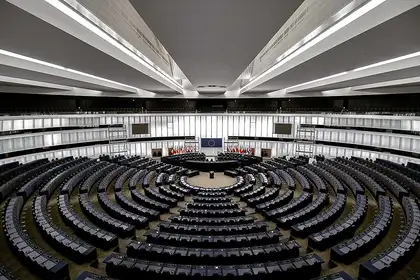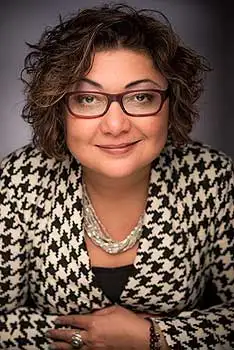
Including women’s voices could change the aim of international security from power competition and dominance to a more balanced ideological position that pays attention to human security and prevention of conflicts, says Dr Negar Partow.
By Dr Negar Partow
In February 2022 the Russian military attacked Ukraine under the leadership of President Vladimir Putin. There was no report or image about any women being involved in the process of decision making or being allowed to object to Putin’s ambitious plans for Ukraine.
The decision to attack Ukraine was made exclusively by men. Volodymyr Zelenskyy, the President of Ukraine is also a male, and responded to Russia’s aggression with a typical everyday narrative of defence.
Both leaders are sensationalist in their speeches. In the three speeches that Putin held last week, emotional themes such as patriotism, loyalty, sacrifice, and brotherhood were regularly evoked. President Zelenskyy speaks with the same emotional language – asking for more guns, military equipment, human resources, and financial resources, to respond to Russian military aggression with aggression. There is also no female voice in Ukraine leadership. There is not even a question about an alternative view. We live in a man’s world in which aggression is only responded to with aggression.
This exclusion of women‘s voices, and obsessively focusing on aggression as the only tool for security and liberation, is not limited to the discourses of the conflicting parties. The exclusion of women is a systematic process that not only results in the continuation of war, but also feeds into the competition over hegemony, and that is what we have witnessed in responses to Russian aggression.
Soon after the invasion, the United Nations Security Council (UNSC) announced an emergency meeting. The leaders of all the permanent members of the UNSC are men - Xi Jinping (China), Emmanuel Macron (France), Vladimir Putin (Russia), Boris Johnson (UK), and Joe Biden (US). There are only two female representatives on the Council - Barbara Woodward from the UK and Linda Thomas-Greenfield from the US. According to the UNSC website, from 2015-2021 only 19.05 per cent of representatives on the Council were women, but even more disturbingly, only 14 per cent of chairs of committees and working groups in UNSC have been women. This percentage is much lower in chairing meeting and workshop groups that make vital decisions for global peace and security. This gender inequality is much the same for the North Atlantic Treaty Organisation (NATO).
Both the UNSC and NATO claim to be “committed” to the inclusion of women in peace and security discussions, but this claim is far from reality. The UNSC unanimously signed resolution 1325 in the year 2000 (22 years ago) that committed the Council to three pillars of “protection, prevention and participation”, none of which have been prioritised or materialised except in minor changes in setting up United Nations (UN) refugee camps.
Twenty-two years after the signing of the resolution that was supposed to identify women as active agents rather than passive targets of wars, women are more than ever the passive recipients of war. During the last two weeks of attacks, over 1.5 million Ukrainians have been displaced, most of them women and children. The vital point of the resolution, to allow women’s voice and ideas for peace to be heard and taken seriously in international security environments, are institutionally undermined. The resolution of the UNSC on Russia’s aggression was vetoed by Russia, and the issue was silenced until it can come back to the Council. No Ukrainian women’s group, Russian women’s group or any international organisation that works for women was present in the meeting. Women were silenced by the system once again. This lack of attention is, however, not only an issue for the UNSC.
NATO is another major international organisation that has promised gender equality and inclusion of the voices of women in their decision-making process. In November 2021, NATO published a statement hailing the efforts of the organisation in including women’s voices in peace and security, and lauding the nine additional resolutions that the organisation has signed for promoting inclusiveness.
In the statement, NATO claimed to be integrating gender perspectives in its “three core tasks of collective defence, crisis management and cooperative security”. Although the initiatives are highly admirable on paper, NATO’s promise of integration is yet to occur. 0nly six out of 30 permanent representatives on NATO’s council are women. These are predominantly representatives from small liberal democracies in Europe, including Denmark, the Netherlands and Montenegro. Only very recently were there women representatives from France, the UK, and the US. None of these countries have a woman leader.
Similar to Putin’s rhetoric and that of the Ukraine president, the solution from NATO was to “defend” (read aggressive military operation). There was, however, no discussion whatsoever about the impact of a full-scale war on women, or the ways in which women could participate in peace negotiations.
We are certainly far from gender equality in the international security environment. This is particularly important for thinking about global security and the ideological positions of the states that obsessively and exclusively focus on accumulation of power and hegemonic desires.
In achieving these hegemonic desires, women’s voices are excluded. Including women’s voices could change the aim of international security from power competition and dominance to a more balanced ideological position that pays attention to human security and prevention of conflicts.
Dr Negar Partow is a Senior Lecturer in Security Studies in the Centre for Defence and Security Studies at Massey University.

Dr Negar Partow